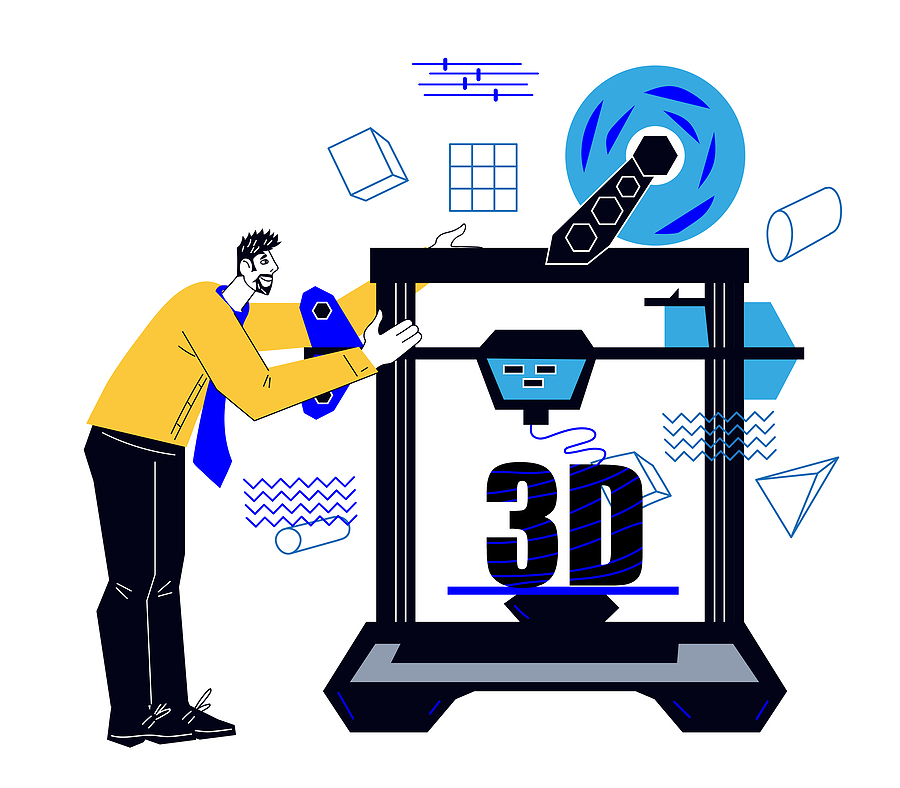
How 3D Printing is Revolutionizing Manufacturing Across Industries
3D Printing Manufacturing Innovation Tech Trends Additive Manufacturing Industry 4.0 Customization Sustainable Manufacturing
How 3D Printing is Revolutionizing Manufacturing Across Industries
3D printing, also known as additive manufacturing, is no longer a futuristic concept—it’s a game-changing technology that’s rapidly transforming the manufacturing landscape. By enabling faster, more efficient production, reducing waste, and offering unprecedented customization, 3D printing is making its mark in industries ranging from automotive and aerospace to healthcare and fashion. In this post, we’ll explore the many ways 3D printing is revolutionizing manufacturing across the globe.
What is 3D Printing?
3D printing is an additive manufacturing process that creates physical objects by layering material based on a digital design. Unlike traditional manufacturing, which often involves cutting away material from a larger block, 3D printing builds objects layer by layer. This process allows for more complex designs, greater precision, and reduced material waste.
Key Benefits of 3D Printing in Manufacturing
The adoption of 3D printing offers several benefits over traditional manufacturing processes. Let’s take a look at how this technology is changing the way products are designed, produced, and distributed.
1. Faster Prototyping and Product Development
One of the greatest advantages of 3D printing is its ability to accelerate product development cycles. In traditional manufacturing, creating prototypes can take weeks or even months, but 3D printing allows companies to quickly produce multiple iterations of a design in a matter of hours. This rapid prototyping not only speeds up the development process but also allows for more testing and refinement of designs before mass production.
2. Customization and Personalization
3D printing enables manufacturers to create highly customized products, allowing for greater flexibility in design and production. Whether it’s personalized medical implants or custom-made fashion accessories, 3D printing can produce one-off items tailored to individual specifications. This ability to offer unique products is especially valuable in industries where customization is a key selling point, such as healthcare and fashion.
3. Reduced Waste and Sustainability
Unlike traditional subtractive manufacturing, which often results in significant material waste, 3D printing is an additive process that uses only the material needed to create the object. This not only reduces waste but also makes 3D printing a more sustainable option. Additionally, many 3D printers now use recycled materials or biodegradable plastics, further enhancing the eco-friendliness of the technology.
4. Complex Designs and Innovation
3D printing allows for the creation of highly complex and intricate designs that would be difficult or impossible to achieve with traditional manufacturing methods. This opens the door to new innovations in product design, enabling companies to explore more creative and functional designs. Industries like aerospace and automotive are using 3D printing to produce lightweight yet durable parts with complex geometries that improve performance.
Industries Embracing 3D Printing
3D printing is making waves across a wide range of industries. Here’s how different sectors are leveraging this technology to push the boundaries of manufacturing:
1. Automotive and Aerospace
The automotive and aerospace industries have been early adopters of 3D printing technology. Manufacturers are using 3D printing to produce lightweight components, improve fuel efficiency, and create prototypes for new vehicles and aircraft. Aerospace companies, in particular, are benefiting from 3D printing’s ability to create complex, high-performance parts that meet strict safety and durability standards.
2. Healthcare
In healthcare, 3D printing is being used to create personalized medical devices, implants, and prosthetics. Surgeons can use 3D-printed models to plan complex procedures, while patients can receive custom-fitted prosthetics and orthotics tailored to their exact needs. Additionally, researchers are exploring the potential of 3D printing in bioprinting, where living cells are used to print tissue and organs.
3. Fashion and Design
The fashion industry is leveraging 3D printing to create unique, custom-made clothing and accessories. Designers can experiment with new materials and patterns, producing intricate designs that would be difficult to achieve with traditional manufacturing. 3D printing also enables the creation of sustainable fashion by reducing material waste and allowing for on-demand production.
4. Architecture and Construction
3D printing is even making its way into the construction industry, where it’s being used to print entire structures. This technology allows for faster construction times, reduced labor costs, and the ability to create custom architectural designs. From houses to bridges, 3D printing is revolutionizing the way we think about building.
The Future of 3D Printing in Manufacturing
As 3D printing technology continues to evolve, its impact on manufacturing will only grow. Future advancements in materials, speed, and precision will further expand the possibilities of what can be created with 3D printing. Additionally, the rise of Industry 4.0 and smart manufacturing is expected to integrate 3D printing with other cutting-edge technologies, such as artificial intelligence (AI) and robotics, to create even more efficient and automated production processes.
Conclusion
3D printing is revolutionizing the manufacturing industry by offering faster production, greater customization, reduced waste, and the ability to produce complex designs. As the technology continues to advance, we can expect to see even more industries adopting 3D printing to drive innovation, reduce costs, and create more sustainable products. The future of manufacturing is here, and 3D printing is leading the way.
Thank you for reading, and stay tuned for more insights and tips as we continue our tech journey together!